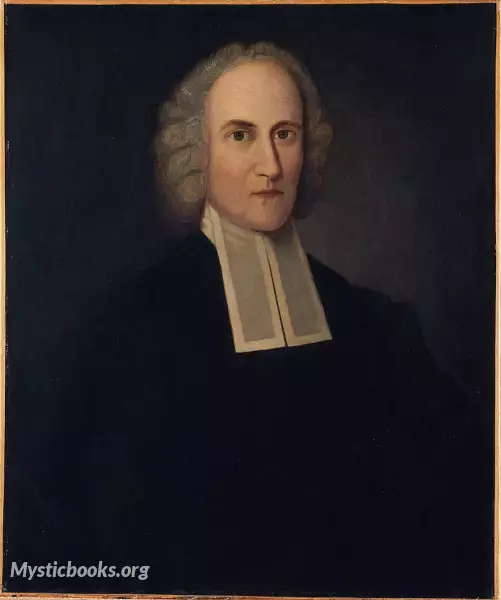
Timeline
Title
Country/Nationality
Jonathan Edwards
Jonathan Edwards was an American revivalist preacher, philosopher, and Congregationalist theologian. Edwards is widely regarded as one of America's most important and original philosophical theologians. Edwards' theological work is broad in scope, but rooted in the pedobaptist (baptism of infants) Puritan heritage as exemplified in the Westminster and Savoy Confessions of Faith. Recent studies have emphasized how thoroughly Edwards grounded his life's work on conceptions of beauty, harmony, and ethical fittingness, and how central The Enlightenment was to his mindset. Edwards played a critical role in shaping the First Great Awakening, and oversaw some of the first revivals in 1733–35 at his church in Northampton, Massachusetts. His theological work gave rise to a distinct school of theology known as New England theology.
Jonathan Edwards was born on October 5, 1703, the only son of Timothy Edwards (1668–1759), a minister at East Windsor, Connecticut (modern-day South Windsor), who eked out his salary by tutoring boys for college. His mother, Esther Stoddard, daughter of Rev. Solomon Stoddard of Northampton, Massachusetts, seems to have been a woman of unusual mental gifts and independence of character. Jonathan, their only son, was the fifth of 11 children. Timothy Edwards had at least one slave in their household, a black man named Ansars. Jonathan was trained for college by his father and elder sisters, all of whom received an excellent education. His sister Esther, the eldest, wrote a semi-humorous tract on the immateriality of the soul, which has often mistakenly attributed to Jonathan.
Edwards owned as slaves several black children and adults during his lifetime, including a young teenager named Venus who was kidnapped in Africa and whom he purchased in 1731, a boy named Titus, and a woman named Leah. In a 1741 pamphlet, Edwards defended enslaving people who were debtors, war captives, or were born enslaved in North America, but rejected the trans-Atlantic slave trade.
After being dismissed from the pastorate, he ministered to a tribe of Mohicans in Stockbridge, Massachusetts. In 1748, there had come a crisis in his relations with his congregation. The Half-Way Covenant, adopted by the synods of 1657 and 1662, had made baptism alone the condition to the civil privileges of church membership, but not of participation in the sacrament of the Lord's Supper. Edwards's grandfather and predecessor in the pastorate, Solomon Stoddard, had been even more liberal, holding that the Supper was a converting ordinance and that baptism was a sufficient title to all the privileges of the church.
Books by Jonathan Edwards

The Freedom of the Will
An Inquiry into the Modern Prevailing Notions of the Freedom of the Will which is Supposed to be Essential to Moral Agency, Virtue and Vice, Reward and Punishment, Praise and Blame or simply The Freedom of the Will, is a work by Christian reformer, t...

The Life of David Brainerd
It is about the life and ministry of David Brainerd, a Christian missionary to the Native Americans in the mid-18th century. Written in 1749, "The Life of David Brainerd" is a captivating and inspiring account of a man who dedicated his life to shar...

Select Sermons
This collection of nineteen sermons by Jonathan Edwards, an influential American theologian and preacher, offers a glimpse into the religious landscape of colonial New England. Edwards' powerful and evocative sermons, including the renowned "Sinners...

Religious Affections
In 'Religious Affections,' Jonathan Edwards, a prominent figure in the Great Awakening, delves into the nature of genuine religious experience. He explores the role of emotions, or 'affections,' in Christian faith, arguing that while they can be a p...

Dissertation Concerning the Nature of True Virtue
In "A Dissertation Concerning the Nature of True Virtue," Jonathan Edwards delves into the intricate relationship between virtue and beauty. He posits that true virtue is not merely a set of rules or principles, but rather a quality that emanates fro...